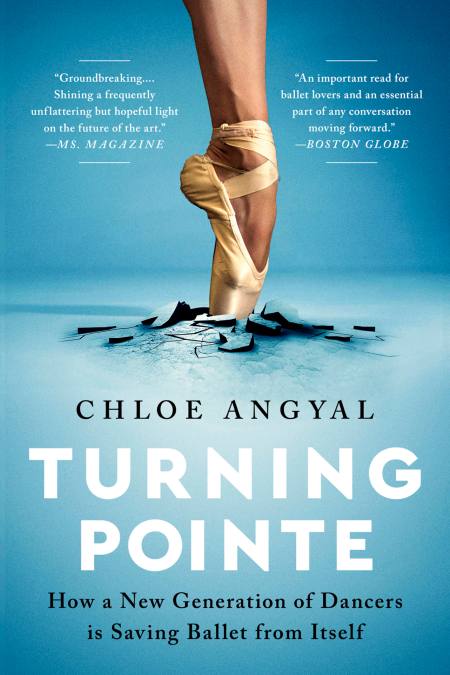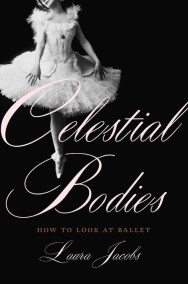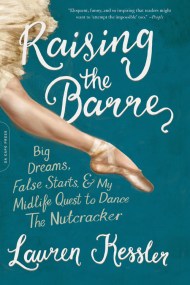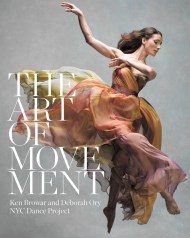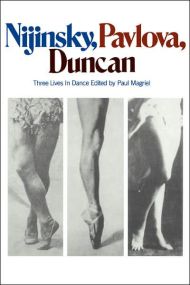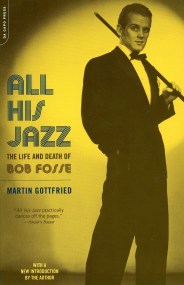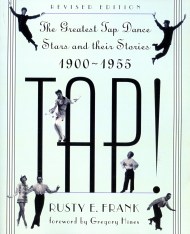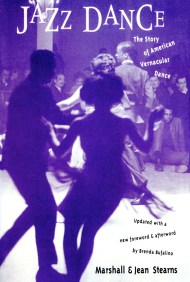Book Chloe Angyal for a virtual event at your ballet school!
Shopping Cart
Turning Pointe
How a New Generation of Dancers Is Saving Ballet from Itself
Description
A reckoning with one of our most beloved art forms, whose past and present are shaped by gender, racial, and class inequities—and a look inside the fight for its future
Every day, in dance studios all across America, legions of little children line up at the barre to take ballet class. This time in the studio shapes their lives, instilling lessons about gender, power, bodies, and their place in the world both in and outside of dance.
In Turning Pointe, journalist Chloe Angyal captures the intense love for ballet that so many dancers feel, while also grappling with its devastating shortcomings: the power imbalance of an art form performed mostly by women, but dominated by men; the impossible standards of beauty and thinness; and the racism that keeps so many people of color out of ballet. As the rigid traditions of ballet grow increasingly out of step with the modern world, a new generation of dancers is confronting these issues head on, in the studio and on stage. For ballet to survive the twenty-first century and forge a path into a more socially just future, this reckoning is essential.
Every day, in dance studios all across America, legions of little children line up at the barre to take ballet class. This time in the studio shapes their lives, instilling lessons about gender, power, bodies, and their place in the world both in and outside of dance.
In Turning Pointe, journalist Chloe Angyal captures the intense love for ballet that so many dancers feel, while also grappling with its devastating shortcomings: the power imbalance of an art form performed mostly by women, but dominated by men; the impossible standards of beauty and thinness; and the racism that keeps so many people of color out of ballet. As the rigid traditions of ballet grow increasingly out of step with the modern world, a new generation of dancers is confronting these issues head on, in the studio and on stage. For ballet to survive the twenty-first century and forge a path into a more socially just future, this reckoning is essential.
Praise
“Groundbreaking…. Shining a frequently unflattering but hopeful light on the future of the art.”
—Ms. Magazine
“In this captivating debut, journalist Angyal mounts a thorough examination of classical ballet’s fraught history of racial, sexual, and class bias and the reckoning from within that’s pushing to change it… Timely and thought-provoking, this book is a must for ballet lovers and anyone interested in the cultural conversation.”
—Publishers Weekly
“Incisive and unsparing…. an important read for ballet lovers and an essential part of any conversation moving forward.”
—Boston Globe
“Angyal’s reporting is thorough and compelling, and some of the stories she relates are heartbreaking…. Required reading for anyone who loves ballet and cares about its future.”
—Library Journal
“A vigorously reported critique of common policies and practices in the ballet world.”
—Kirkus Reviews
“Angyal, a journalist and former dancer, raises the curtain and goes backstage to reveal why this beloved cultural tradition is imperiled.”
—Booklist
“Turning Pointe: How a New Generation of Dancers is Saving Ballet from Itself is a painstaking, and often painful, assessment of the troubling racialized, gendered, and classed lessons of classical ballet. Angyal’s sharp analysis invites us to wonder how ballet might expand if it did not require broken toes, torn ligaments, starving dancers, or pink tights. This is the book for all of us who loved ballet but found it did not love us back.”
—Melissa Harris-Perry, Maya Angelou Presidential Chair at Wake Forest University and cohost of System Check
—Melissa Harris-Perry, Maya Angelou Presidential Chair at Wake Forest University and cohost of System Check
“This is the book I desperately needed as a teenage ballerina, when I mistakenly thought there was something wrong with me rather than ballet’s culture. Having read it, I want to buy copies for every aspiring dancer, as well as the gatekeepers who most need to read it. Angyal reports with urgency and precision about what draws young dancers to ballet, and how it needs to change to keep them there. Turning Pointe is a long-overdue reckoning for an art form that excludes and injures its dancers as much as it dazzles them.”
—Ellen O’Connell Whittet, author of What You Become in Flight
“The best art is not an escape for the audience, but a journey. It uses beauty incisively, and that is what Chloe Angyal’s writing does. In her essential observations about her beloved ballet, she reminds us of the necessity of thinking critically, especially about that which we love the most.”
—Jamil Smith, journalist and contributor to Believe Me
“There’s no question: Turning Pointe is a groundbreaking book that stands to shift the nature of ballet as we know it. The depth of reporting is astounding, inspiring, and necessary: Chloe Angyal doesn’t just explore ballet, she examines it, holding up magnifying glasses and mirrors to the inequities and systemic issues that have persisted for too long, the innovation unfolding in studios and on stages, and the shattering of rigid tradition that today’s ballet can’t let stand. With Angyal’s obvious passion for the art form and thoughtful, immersive conversations with sources from across the ballet world at the heart of this book, Turning Pointe is a must-read for any current or former dancer, dance parent, or individual who is interested in a vibrant, inclusive future of a classical art form. Turning Pointe reads like a reckoning—one that can truly change ballet for the better.”
—Rainesford Stauffer, author of An Ordinary Age
"Angyal’s Turning Pointe is a vital industry manifesto for a new era in ballet."
—New York Journal of Books
"If you want an immaculately researched and piercing look at ballet and its costs, look no further. Truly, I inhaled it. Heavy stuff, but told with so much skill and energy."
—Brandon Taylor, author of Real Life
“Turning Pointe isn’t always an easy read, but it’s an important one. And it’s one whose message is, ultimately, of hope.”
—Seattle Times
